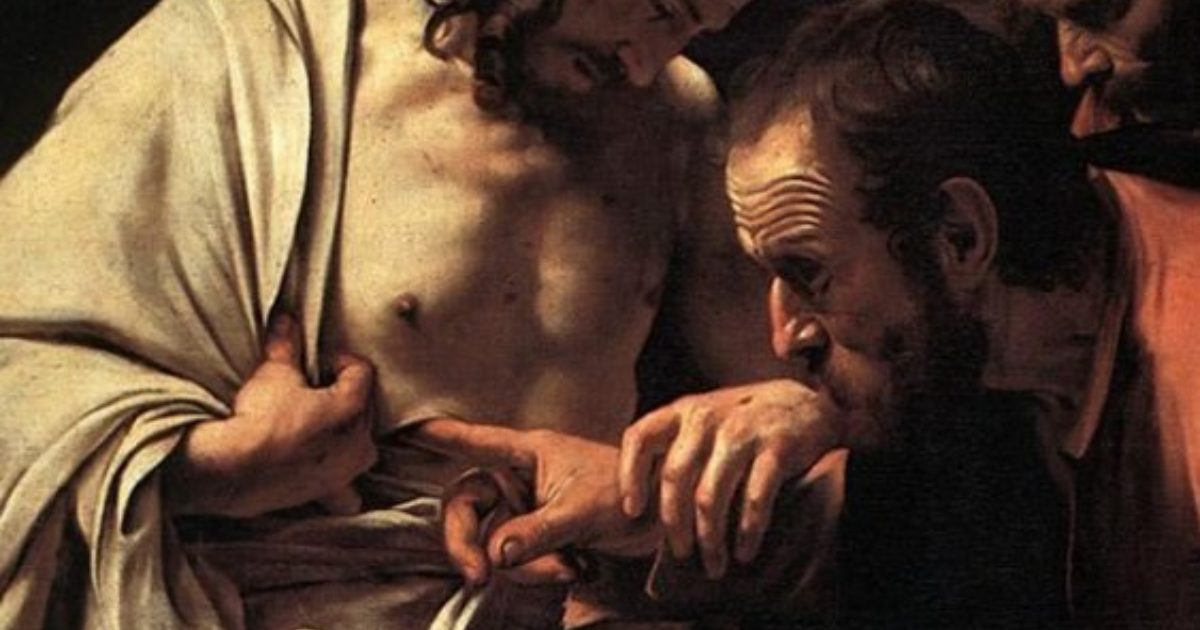
In my previous blog, I posted an open letter to the Wesleyan Covenant Association concerning their slogan “The Bible Is True” (as explained by Rev. Jeff Greenway on the WCA website). The letter has prompted lots of response. This year at annual conference, many people expressed appreciation for the stance I had taken–thank you. I also thank Kris Bishop and Rev. Joe Stains for taking the time to draft detailed formal responses, deserving a reply (you can find their responses below, in full).
First, both letters acknowledge the main point of my letter: that readers of Scripture are also inescapably interpreters of Scripture. Neither letter embraces the position Rev. Greenway advocated in his post, which is no surprise: “God said it–I believe it–that settles it” is not an accurate account of anyone’s actual approach to the Bible. Texts must be read, interpreted, and applied prayerfully and carefully, attentive to their context in Scripture and in history. Kris Bishop is absolutely correct that the examples I cited to make this point were not comparing “apples to apples,” but “trying to say that apples are oranges and oranges are pears.” I agree entirely with the biblical justifications Rev. Stains uses for Sunday worship (one of my illustrations), and both Kris Bishop and Rev. Stains are correct that the texts I cited about women in ministry from the Pastoral Epistles are certainly context-bound.
But that was exactly my point. All of us readily recognize, for example, that the ritual purity laws in Leviticus and Deuteronomy are of a different order than Leviticus 19:18 or Deuteronomy 6:5 (Jesus calls these the two greatest commandments; see Matthew 22:34-40; Mark 12:28-34; and Luke 10:25-28). Different passages may call for different approaches. The Bible is not flat!
I apologize if this was unclear in my letter: after all, I did write,”Consistency and honesty demand that we treat the biblical statements on this issue [that is, homosexuality] no differently than we do other texts.” But what I meant by this was that since we acknowledge the importance of context in those other matters, we ought to recognize that importance in our reading of the homosexuality passages as well (those interested in my approach to those biblical texts can find my blogs on those passages by entering “homosexuality” in the “Search” window).
This was, in particular, my reason for mentioning divorce in the letter. I agree entirely with Rev. Stains’ pastoral approach to divorce and remarriage. It must be acknowledged, however, that while in Matthew 19:9 and 5:31-32 divorce is permitted in cases of adultery, no such allowance is made in Luke 16:18, Mark 10:1-12, or 1 Cor 7:10-16–and remarriage is forbidden in all. We can make sense of Jesus’ teaching by seeing it in its historical and social context: in Palestine in Jesus’ day, women could not independently own property. Divorce meant that the woman would be dependent upon her family or community to support her, and could therefore be made homeless and destitute by her husband’s rejection. So Jesus set the Law aside and rejected divorce in order to protect women from being set aside at their husbands’ whims.
My point is that the biblical basis for opposing divorce and remarriage is as strong as if not stronger than the biblical basis for opposing LGBTQ inclusion. Context matters–not only the historical, social, and canonical context of the biblical texts, but our own contemporary, pastoral context as well.
However, both Kris Bishop and Rev. Stains have misunderstood my reason for making this point. Kris Bishop writes, “We cannot say that just because we don’t follow dietary law of the OT that NT laws no longer apply or should be reinterpreted.” Rev. Stains observes, “Dr. Tuell cites these perceived contradictions as if to suggest that, since we have already taken liberty with these issues, we are now free to take it wherever we choose.” Both seem to think that I am in danger of setting aside moral standards in Scripture, or that I am advocating for a mere relativism–since the church has already taken positions in opposition to some Scripture on some points, then anything goes! But my letter does not say this, nor is it my position.
If we grant (as both of my respondents evidently do) that ALL of us are interpreters of Scripture, then it does not do to claim that wrestling with the interpretation of the Bible amounts to declaring that “God’s Word and his will for us is no longer the truth,” or to say that those with whom we disagree “believe that those Scriptures that no longer conform to the norms of modern society are obsolete and without meaning. In essence, they want the church to proclaim to the world that in some places in Scripture, God got it wrong” (statements taken directly from Rev. Greenway’s post).
Nor, by the way, does this mean that all interpretations are equally valid–clearly, Scripture can be misread. But surely, recognizing that we are all of us interpreters, seeking to discern God’s will in the words of Scripture, calls for humility on all sides, and a willingness to listen (and to argue!) without breaking fellowship. Surely, such openness is in the spirit of John Wesley!

In his Sermon 39, on the “Catholic Spirit,” John Wesley unpacks 2 Kings 10:15, which reads in the King James Version “And when [Jehu] was departed thence, he lighted on Jehonadab the son of Rechab coming to meet him: and he saluted him, and said to him, ‘Is thine heart right, as my heart is with thy heart?’ And Jehonadab answered, ‘It is.’ ‘If it be, give me thine hand.’ And he gave him his hand; and he took him up to him into the chariot.” Wesley declared this as his own view with regard to sisters and brothers from other church bodies: “Is thine heart right, as my heart is with thy heart? If it be, give me thine hand.”
I do not mean, “Be of my opinion.” You need not: I do not expect or desire it. Neither do I mean, “I will be of your opinion.” I cannot, it does not depend on my choice: I can no more think, than I can see or hear, as I will. Keep you your opinion; I mine; and that as steadily as ever. You need not even endeavour to come over to me, or bring me over to you. I do not desire you to dispute those points, or to hear or speak one word concerning them. Let all opinions alone on one side and the other: only “give me thine hand.”
By this, Wesley did not mean to call for mere relativism either (a position he calls “speculative latitudinarianism,” or “an indifference to all opinions: this is the spawn of hell, not the offspring of heaven”!). Indeed, Wesley held that every Christian must hold her or his convictions firmly: “A man of a truly catholic spirit has not now his religion to seek. . . . he is always ready to hear and weigh whatsoever can be offered against his principles; but as this does not show any wavering in his own mind, so neither does it occasion any.”

That said, however, Wesley was also fully aware that “humanum est errare et nescire: ‘To be ignorant of many things, and to mistake in some, is the necessary condition of humanity’” (Wesley’s own translation of a quote from the Duke of Buckingham’s epitaph)—that is, “He knows, in the general, that he himself is mistaken; although in what particulars he mistakes, he does not, perhaps he cannot, know.” This realization necessitates, in any reasonable person, a generosity of spirit:
Every wise man, therefore, will allow others the same liberty of thinking which he desires they should allow him; and will no more insist on their embracing his opinions, than he would have them to insist on his embracing theirs. He bears with those who differ from him, and only asks him with whom he desires to unite in love that single question, “Is thy heart right, as my heart is with thy heart”?
It was not my purpose in my letter, Rev. Stains, to deny that “ORTHODOX SCRIPTURAL VIEWS DO HAVE GROUNDING.” Nor did I intend, Kris Bishop, to say that “there is no way to define sin.” My purpose, and my hope, as I wrote in my letter, is this:
It is my prayer that we can study together, carefully and prayerfully, attentive as Rev. Greenway rightly says to our tradition, but also applying our God-given reason, and listening to the experiences of our sisters and brothers. We may not ever agree in full. But perhaps we can find sufficient concord in the Holy Spirit and Holy Scripture to recognize one another as sisters and brothers.
AFTERWORD:
First, I am now on a year-long sabbatical from my position at Pittsburgh Theological Seminary. For the duration, my blog entries will be more scattered than they have been previously. I ask for your patience, and for your prayers for the research projects in which I am now engaged.
Second, here are the two responses to my letter, in full:
Kris Bishop (see also the comments section of my previous blog):
I’m honestly trying to see things from your perspective, but it seems that you are trying to say that apples are oranges and oranges are pears. Apples are not oranges; oranges are not pears. Hermeneutics is like this as well. A lot of things changed from the OT to the NT – a paradigm shift. We cannot look at an OT passage (an apple) the same way we can look at a NT passage that is intended to be universally interpreted, since the new paradigmatic interpretation is already applied to the passage (this is an orange). The pear is when the passage in the NT is meant for a specific purpose, place, time, scenario, etc.
We cannot say that just because we don’t follow dietary law of the OT that NT laws no longer apply or should be reinterpreted. The OT was full of adumbrations that needed to be illuminated in the NT. When Peter saw the unclean animals in the vision and was told to eat (Acts 10), the dietary law was shown to have a true purpose to point forward from the time of separation from the Gentiles to the time of inclusion of the Gentiles. Further, dietary laws are to be interpreted in light of the NT explications: “…commanding to abstain from meats…” even though “it is sanctified by the word of God and prayer” (1 Timothy 4:3-5) or Romans 14:14 that says that “there is nothing unclean of itself”.
We also cannot say that we interpret something listed as a “work of the flesh” or as “sin” as something that was given as specific instructions to a specific church. If the Bible were to say to “suffer not a HOMOSEXUAL to teach, nor to usurp authority over the man, but to be in silence” (1 Timothy 2:12) we would have to interpret, because for a person to “be in silence” is impossible to follow 100% of the time – it was obviously meant for a specific time or situation. In this case, we would have to identify the situation that a HOMOSEXUAL wouldNOT be able to be quiet and/or to teach.
If the Bible were to say that “…A BLACKSMITH…shall not inherit the kingdom of God” (1 Corinthians 6:7 1Timothy 1:10, and Romans 1), we would need NO interpretation. A person who works as a BLACKSMITH is obviously doing something wrong in this example. It has nothing to do with how he/she was born or was nurtured; it has to do with what he/she does. A person can be born with proclivities toward being a BLACKSMITH, may have the talent to become a BLACKSMITH, and may even be nurtured and trained as a BLACKSMITH, but then he still has a choice to become a BLACKSMITH by taking on the role of a BLACKSMITH. A person can be born with a predisposition to alcohol and be in an environment that encourages drinking, and still choose not to drink. I see homosexuality as the same thing – being active in a lifestyle is different from having certain temptations that may lead to that lifestyle.
The Apple here is the dietrary laws; the orange is the “shall not inherit the Kingdom of Heaven” situations (to include HOMOSEXUALITY), and Pear is the questionable one of silence for women. They are all to be treated Hermeneutically differently, but the Oranges are black-and-white, and only the apples and pears are gray. If we cannot draw a line at homosexuality as sin with such black-and-white language as there is in the NT concerning HOMOSEXUALITY and other sins (1 Corinthians 6:7; 1Timothy 1:10, and Romans 1), then is it even possible to draw a line that defines sin? I think not. And if there is no way to define sin, then “let us eat and drink; for tomorrow we die (Romans 15:32).”
Joe Stains (from his Facebook page):
Church-related friends are most likely to recognize the connection to this essay I wrote in response to an article recently distributed by Dr. Steven Tuell of Reconciling Ministries. It is part of an ongoing dialogue. Anyone interested is welcome to read.
ORTHODOX SCRIPTURAL VIEWS DO HAVE GROUNDING
In mid-May the Reconciling Ministries Network of Western Pennsylvania posted a positional article on use of scripture by Dr. Steven Tuell, a professor at Pittsburgh Theological Seminary, in response to an article by Dr. Jeff Greenway of the Wesley Covenant Association.
This article is a response to Dr. Tuell’s, with concern for a balanced overview of scriptural interpretation in general, and its application to the current, pressing issue before our church and society regarding LGBT acceptance. Many credentialed writers have presented on all sides of these issues, after all, and the conversation must continue.
When the passages Dr. Tuell cites, and the issues they represent, are viewed in a larger context of covenant history, we find different implications from those offered in his article.
Mosaic law was variously civil, ceremonial, and moral. Its revisions came with major, covenant-altering episodes:
1) Execution of Old-Testament civil penalties essentially ended with the Babylonian invasion. Thus, for instance, the Sanhedrin needed Rome to crucify Jesus.
2) Second Isaiah’s new allowances for permission to enter the envisioned New Temple were based on his new
understanding of Israel’s divine purpose in history—a light to the nations (Isaiah 49:6, 60:1-3); a house of prayer for all people who hold fast to the Lord’s covenant (Isaiah 56:4-8).
3) Jesus’ life, death, and resurrection introduced the radical New Covenant—the ultimately worldwide Kingdom of God. Ceremonial law became obsolete. He declared all foods clean. Sabbath obedience was re-oriented. Discussions about vengeance were about its morality rather than civil legitimacy; Moses restricted it, and Jesus went to the motive, offering a counter-approach for New Covenant disciples.
4) With respect to moral law, however, Jesus’ teachings—especially in Matthew 5—actually raised the bar for his followers. The consistent principle there took obedience from outward action to inward motive. Thus those innocent of actual murder are not off the hook while harboring malice, those innocent of actual adultery must still answer for harboring lust, etc. Men (the only ones allowed at the time to divorce) had no moral right to cut loose their wives except for adultery. Those teaching to relax the moral code “will be called least in the kingdom of heaven.” Those not embracing the higher moral bar “will not enter the kingdom of heaven.”
Dr. Tuell goes on to suggest that the Church already has co-opted practices contrary to scripture in positions regarding divorce, Christian sabbath, and female leadership. It would be redundant to re-articulate the biblical and theological bases for these practices, which long-since have been made in other venues. In brief observation, though:
1) Divorce by any measure is a consequence of our fallenness. Jesus accepts divorce in the case of unfaithfulness (Matt. 5:32); but it is always, as our Discipline also states, a tragic result of our human brokenness. Conscientious believers recovering from it testify to recovery from sin that induced the divorce before being ready for a new start.
2) Christian choice of Sabbath is based on Jesus’ identity as Lord of the Sabbath (Mark 2:27f), the consistent practice of Christians to gather on the first day of the week, (eg. Luke 24 and John 20, Acts 20:7, I Corinthians 16:1f.}, the omission of Jewish Sabbath in the letter to Gentile Christians in Acts 15, and the dismissal of preoccupation with the issue, Colossians 2:7. Effectively, only Jewish Christians in the New Testament observed Jewish Sabbath.
3) Scriptural references regarding female leadership are not unilateral. Dr. Tuell mentioned only the situational
passages against it, sans the balancing references in its favor, eg. Judges 4:4,8f.; Romans 16:1-2; and Joel 2:28f. (quoted also by Peter in Acts 2:17f.).
Dr. Tuell cites these perceived contradictions as if to suggest that, since we have already taken liberty with these issues, we are now free to take it wherever we choose. These are not compelling analogies to the “elephant in the room”, as Dr. Tuell dubs it.
First, to be clear, the issue at hand is not about whether practicing homosexuals have been in pews. Nor is it about whether we are called to love people in spite of sin. The questions are:
1) Is homosexual practice sin?
2) If so, is it of a kind that precludes one from Christian leadership?
Tradition and the historical weight of scriptural interpretation say yes to both, evidenced by the consistency of Orthodox, Roman Catholic, and pre-20th Century Protestant positions on the matter. Wherever the practice is explicitly mentioned in scripture (mainly Leviticus, I Corinthians, and Romans), it is described with unambiguous repugnance, across over a thousand years, from Jewish distinction as God’s people to Gentile Christian witness in a morally pluralistic culture. The revisionist view has arisen in the 20th-century West, in the context of the Sexual Revolution’s new ethic, and the desire of the Western church to recover former rapprochement with the increasingly secularized ambient culture. It is the revisionists’ contrast to this historically consistent exegetic—not simplistic conservative interpretation—that raises the WCA’s question about revisionist priority for biblical faithfulness.
There are widely-accepted boundaries around eligibility for Christian leadership. No church is likely to publicly endorse leaders known for present drunkenness, theft, gambling, or racism, for instance. In the realm of sexual practice, there also are boundaries honored by consensus: practicing adultery, polygamy, marriage to relatives, nonmarital relations, relations with animals, to name some. Most of these are biblically based, as is homosexual practice. If we make a singular exception for homosexual practice, we need a strong theological rationale for doing so. The culture has already started asking us about some of the others. If we pass on one, on what grounds do we continue to exclude the next?
Further, rearranging historically-accepted boundaries of moral behavior also should come with a watershed redefinition of covenant identity as it has in the past, on the scale of Temple destruction and exile in the Old Testament, or the Resurrection of Jesus in the New. Even in those critical events, it was ceremonial and civil—not moral frameworks—that were revised. Against the magnitude of those events, the Sexual Revolution or the affluent West’s cultural drift do not appear to stand tall.
One of the things seekers want deeply to know from Christians is what a godly ethical framework for living looks like. Many are earnestly willing to change much—sacrificially—in their lives to be closer to God. Traditionalists and revisionists agree on much of what this framework is. And most agree that we do people more good with clarity, and rescue from evil, than from redefining the boundaries of fidelity. The disagreement is not about whether to have boundaries, but rather about whether/where to shift them.
A deeper dialogue on what compassionate consistency looks like is our best hope for restored cogency of our witness in these confusing times.




















